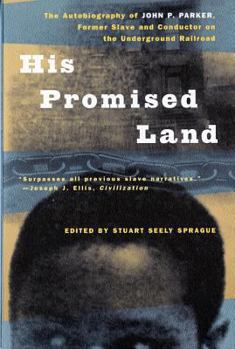His Promised Land: The Autobiography of John P. Parker, Former Slave and Conductor on the Underground Railroad
Select Format
Select Condition 
Book Overview
In the words of an African American conductor on the Underground Railroad, His Promised Land is the unusual and stirring account of how the war against slavery was fought--and sometimes won. John P. Parker (1827--1900) told this dramatic story to a newspaperman after the Civil War. He recounts his years of slavery, his harrowing runaway attempt, and how he finally bought his freedom. Eventually moving to Ripley, Ohio, a stronghold of the abolitionist movement, Parker became an integral part of the Underground Railroad, helping fugitive slaves cross the Ohio River from Kentucky and go north to freedom. Parker risked his life--hiding in coffins, diving off a steamboat into the river with bounty hunters on his trail--and his own freedom to fight for the freedom of his people.





